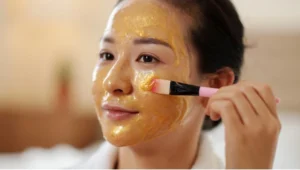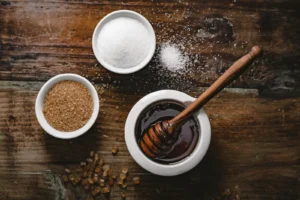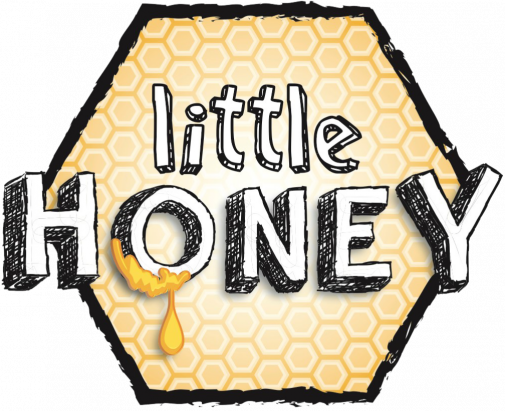
Sidr Honey Straws Specialist Singapore
Do Dermatologists Recommend Honey For the Face?
The short answer is yes, many do. Honey is gentle, full of nutrients, and works well for different skin types. It can hydrate dry skin, soothe redness, fight acne, and give your face a natural glow. In this detailed guide, we’ll explore what science and experts say about honey for the face, its benefits for different skin problems, the best types of honey to choose, how to use it the right way, and safety tips you should know.
Why Honey Deserves a Place in Your Skincare Routine
Dermatologists often recommend honey for the face because it’s one of the few natural ingredients that suits almost all skin types: dry, oily, sensitive, and even acne-prone. It is not just a folk remedy; there’s real science behind why honey works.
Honey contains natural sugars, enzymes, vitamins, and minerals that nourish and protect the skin. It also has antimicrobial properties that can help fight acne-causing bacteria. Its antioxidants help protect your skin from environmental damage, like pollution and sunlight.
Many dermatologists prefer natural treatments when possible, and honey offers a safe, chemical-free option for daily care or as a boost when your skin needs extra love.
The Science Behind Honey for Skin
To understand why honey for the face works so well, it’s helpful to know what’s inside:
- Natural Humectants: Honey attracts water and locks in moisture, keeping skin hydrated.
- Antioxidants: Help fight skin aging and reduce the effects of sun exposure.
- Antimicrobial Compounds: Inhibit the growth of bacteria that cause breakouts.
- Enzymes: Improve skin texture and gently exfoliate dead skin cells.
This combination means honey doesn’t just sit on your skin; it actively works to repair, protect, and improve it.
How Honey Helps with Different Skin Problems
1. Dry or Dehydrated Skin
Honey acts as a natural moisturizer. If your skin feels rough, tight, or flaky, applying honey to your face can restore softness and elasticity without feeling greasy.
2. Acne and Breakouts
The antibacterial properties of honey help reduce the bacteria that cause pimples. At the same time, it soothes inflammation, making acne spots less red and painful.
3. Sensitive Skin
Honey is gentle enough for sensitive skin, reducing redness and calming irritation caused by weather changes, harsh cleansers, or pollution.
4. Dull or Uneven Skin Tone
The enzymes in honey help remove dead skin cells, allowing fresh skin to surface, which can make your complexion look brighter and healthier.
5. Minor Cuts or Skin Irritation
Dermatologists sometimes recommend honey to aid the healing of small wounds, thanks to its antimicrobial and anti-inflammatory effects.
Best Honey Types for Face Care
Not all honey is created equal. Dermatologists agree that raw, unprocessed honey is best for skincare. Here are some options worth considering:
Little Honey: Smooth in texture and mild in taste, perfect for everyday skincare masks or cleansers.
Sidr Honey: Known as one of the most prized honeys in the world, famous for its healing and antibacterial strength.
Sidr Honey Singapore: Fresh, high-quality sidr honey sourced for both wellness and skincare benefits.
Pure Honey Singapore: Raw and chemical-free, it keeps all its natural nutrients intact.
Organic Honey Singapore: Certified organic, making it a safe and environmentally friendly choice for your skin.
Each of these honeys works well, but your choice depends on whether you want a gentle daily option or a powerful treatment for specific skin concerns.
How to Use Honey for Face Care
As a Simple Mask
Spread a thin layer of honey over clean, dry skin. Leave it for 15–20 minutes, then rinse with lukewarm water.
As a Spot Treatment
Dab a small amount of honey directly onto a pimple or irritated spot and leave it overnight for faster healing.
As a Gentle Cleanser
Mix honey with a few drops of warm water and massage onto your skin before rinsing. This removes dirt without stripping natural oils.
As an Exfoliating Scrub
Mix honey with a pinch of finely ground oats for a soft, natural exfoliation.
Safety Tips Before Using Honey on the Face
Even though honey for the face is safe for most people, it’s best to:
- Do a patch test before applying it all over your face.
- Avoid using honey on deep or open wounds unless advised by a doctor.
- Use only raw, pure honey for maximum skin benefits.
- Store honey in a clean, dry place to keep it fresh.
Final Thoughts
So, do dermatologists recommend honey on the face? Especially when it’s raw, pure, and natural. Honey for the face is safe, effective, and full of benefits like hydration, soothing, and healing. Whether you choose little honey for everyday care or sidr honey for targeted skin problems, the results can be impressive when used regularly.
If you want a skincare routine that’s gentle yet powerful, honey could be your perfect natural solution. Just remember, quality matters, so pick high-grade honey and enjoy the glow it brings.
Call to Action:
Ready to feel the difference? Try premium honey varieties like Sidr Honey, Organic Honey Singapore, and Pure Honey Singapore for skin that feels fresh, hydrated, and naturally beautiful.
FAQs
Q1: Can I use honey daily on my face?
Yes, if your skin likes it. For oily or acne-prone skin, 2–3 times a week is usually enough.
Q2: Which honey is best for skin?
Raw, unprocessed honey works best. Sidr honey and organic honey are excellent options.
Q3: Does honey lighten skin?
Honey doesn’t bleach the skin, but it can make it look brighter and healthier.
Q4: Can honey remove scars?
It can help fade mild marks over time, but deep scars may need other treatments.
Q5: Is honey safe for sensitive skin?
Yes, but always do a patch test first to be sure.
Q6: Should I wash my face after the honey mask?
Yes, use lukewarm water and avoid harsh soaps afterward.
Q7: Can I mix honey with other ingredients?
Yes, it works well with natural items like yogurt, aloe vera, or oatmeal.
Q8: What happens if I leave honey overnight?
For spot treatments, it’s fine. For a full mask, it’s better to rinse after 20 minutes.
Share this post :
Categories
Latest Post


Honey for Skin Whitening: Natural Glow Tips

Honey vs Sugar for Brain Energy: Which Is Better?





